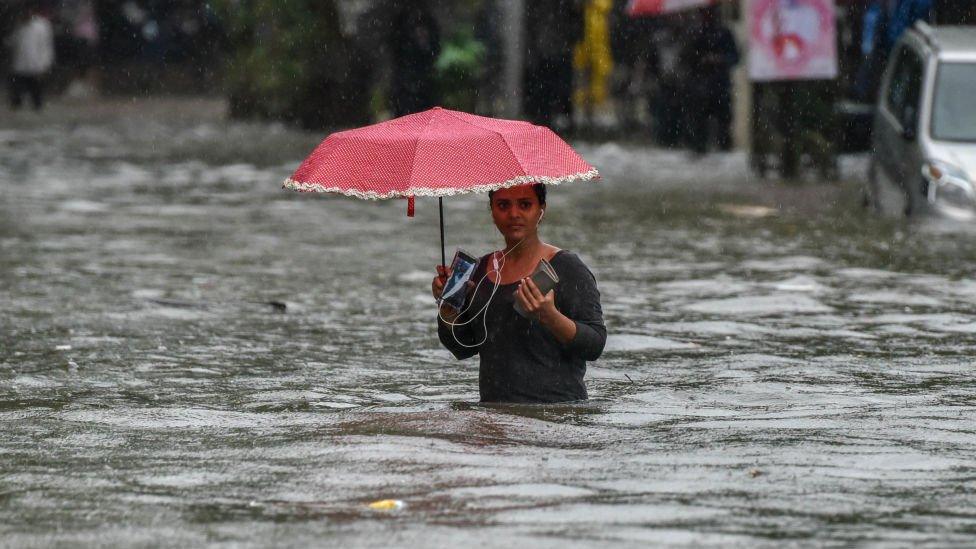Bengaluru floods: How families struggled to find help as India's IT capital drowned
- Published
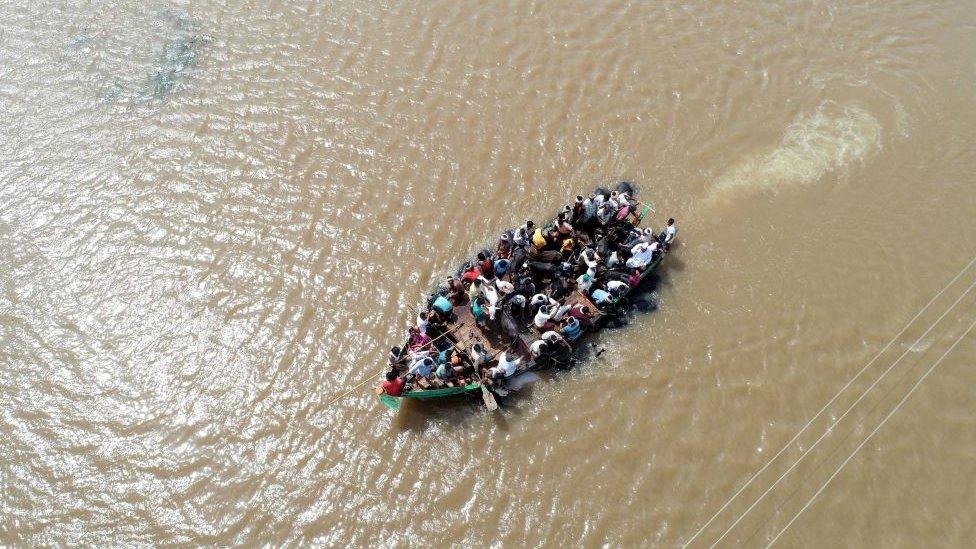
Heavy rains caused severe flooding in Bangalore city last week
India's IT capital Bangalore (also known as Bengaluru) witnessed torrential rains last week, causing severe flooding in several areas. Families that found themselves trapped in their homes as water levels rose around them narrate the ordeal they went through to find help. Rudraneil Sengupta reports.
Late in the evening of 5 September, Ruche Mittal and her husband, Manish, realised that there was trouble brewing.
Ms Mittal, an entrepreneur, and her husband, a director in a biotech company, could see that their housing complex in Whitefield, an upscale neighbourhood, was getting inundated due to heavy rains.
The couple's first-floor apartment in a housing complex called T-Zed was safe, but they had to ensure that Manish's ailing father had access to essential services.
Some flooding was not uncommon in their neighbourhood but by midnight, the ground floor and the basement parking of their complex was flooded. Many of their neighbours whose homes had flooded were moving to higher floors and many others were leaving.
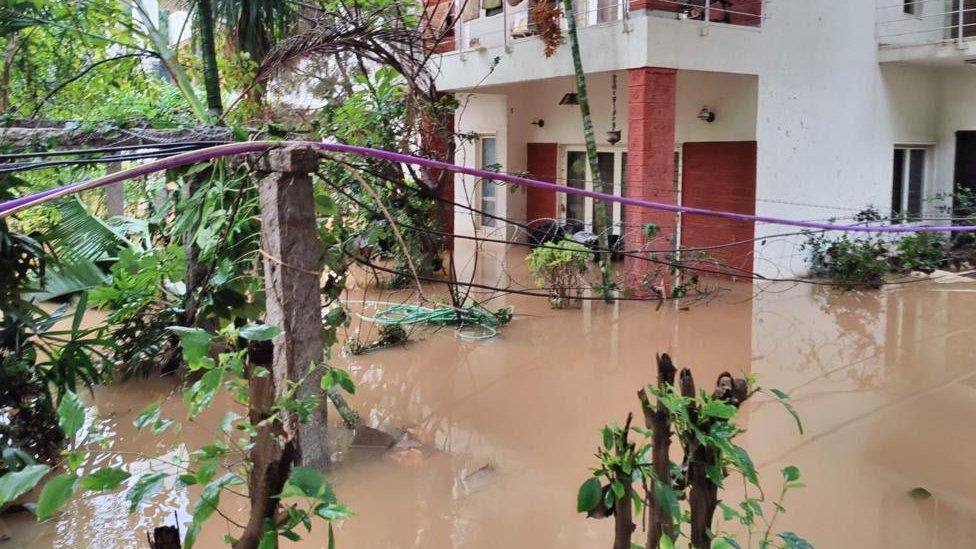
The basement and ground floor of Ruche Mittal's complex were submerged
"At around 02:00, we started calling for help," Ms Mittal said over the phone. "The police, fire brigade, municipality either did not pick up the phone, or said they were unable to help."
Worse still, they could not find an ambulance to shift their father to a relative's home. Their cars had been damaged when the basement parking had flooded a week earlier due to heavy rains.
At that time, some families had left anticipating that worse may come. But most had stayed on, even though the electric supply was patchy and piped water had more or less been shut off because of sewage contamination.
At around the same time that the Mittals began their search for help, Dr Seemanthini Desai, a clinical microbiologist who lived in an independent villa in the complex, was woken up by a call. "Your home is getting flooded!" a friend who lived nearby told her.
Hours earlier, she had driven in the rain to drop her doctor husband, Satish Rudrappa, off at the airport.
The first thing she did after the call was send her son, house help, four rescued cats, a rescued rooster and a hen up to the second floor of their two-storey villa.
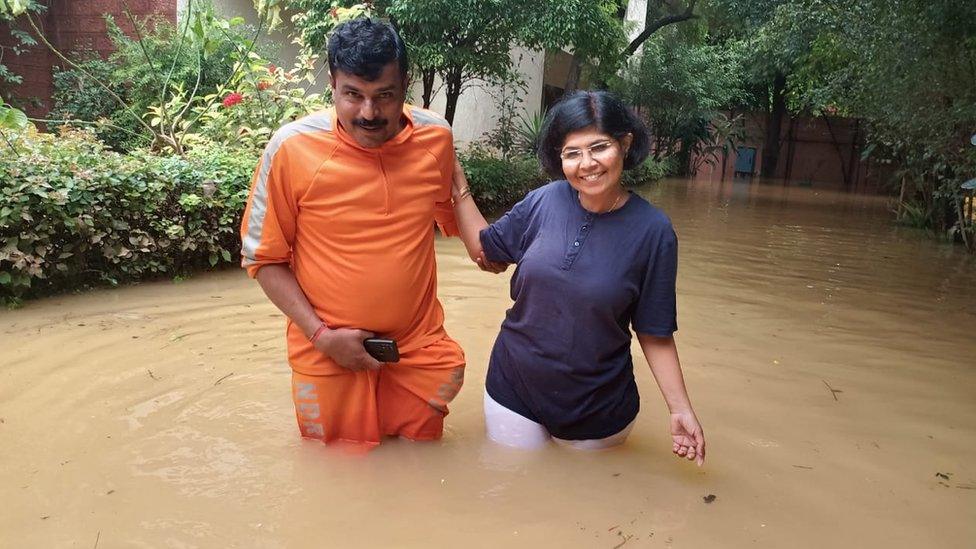
Dr Seemanthini Desai was rescued by an NDRF member
"Then I called a police friend," Ms Desai said. "He said, I can come and get you as a friend, but I am not in a position to help the community."
"That won't do," Ms Desai said - because the villa across her home had an 85-year-old lady who was bedridden and the villa on her left had three senior citizens who were 92, 88, and 80 years old and she believed they needed help first.
Then, she saw the boundary wall of her compound collapse, and water started gushing in.
Her home began to flood, with water reaching up to her waist. Electricity had been cut off. She called a friend who gave her numbers of local city administration, but she got no response from them.
Finally, an inspector with the National Disaster Relief Force (NDRF) - a specialised force that responds to disaster situations in the country - answered her call and assured help.
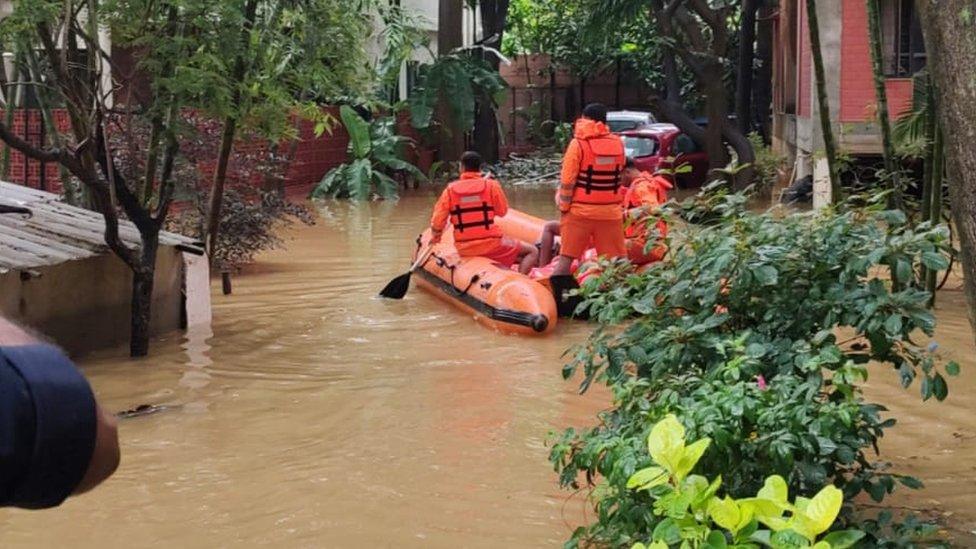
Rescue personnel used boats to evacuate old and vulnerable residents
Whitefield, which lies in Bangalore's eastern corner, saw large-scale construction as the IT industry flourished in the city in the late 1990s.
The area is susceptible to floods because it lies downstream from a system of canals and storm water drains built to connect Bangalore's many lakes. Over the years, sections of these waterbodies have also been built over.
"Back in 2017, I found out that some of our complex is encroaching on storm water drains. This is the case with seven to eight other communities too. I had suggested back then that we should give the land back. This is a wake-up call," Ms Desai said.
The Mittals had moved into the complex in Whitefield in 2013, soon after their marriage. They had been attracted by the greenery and sustainable features offered by the place - water was recycled, solar energy was used for heating water.
"We never thought something like this would happen," Ms Mittal said.
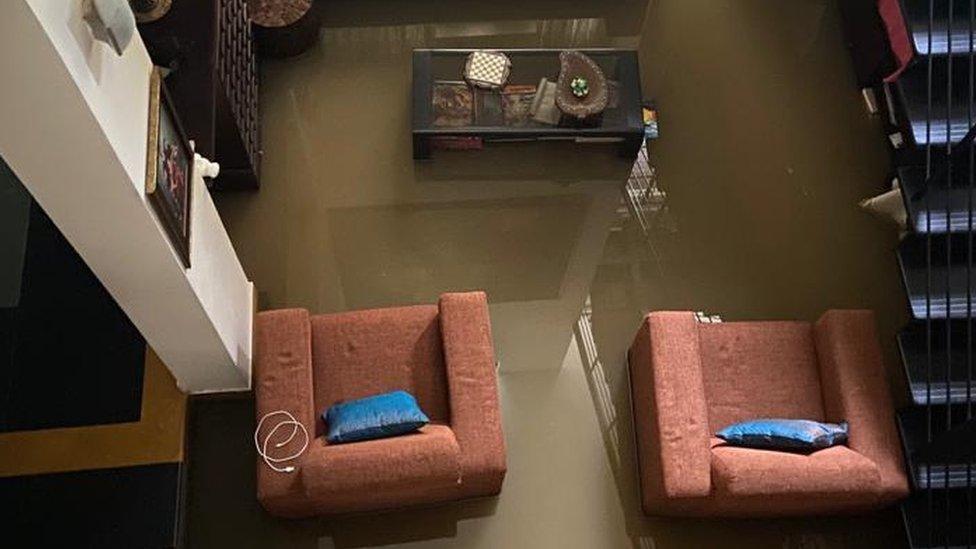
Ms Desai's villa was flooded with waist-deep water
On the morning of 6 September, Ms Mittal and her husband finally managed to get an ambulance. By the time it arrived, the NDRF inspector who Ms Desai had called for help had also reached with his team and was evacuating the old and vulnerable on boats.
Ms Mittal said that everyone from their housing complex came out safe - not just humans but animals as well.
Ms Desai too managed to find help. A friend helped her find a place to stay with her animals.
As she readied to leave her home along with her son, her domestic help and just a few valuables - some jewellery and the ownership documents of her house - .she finally received a call from her husband from Malaysia.
"When I told him what was going on, the first thing he said was, 'Oh my god! My patients' MRI scan reports are there. Can you get them out?'," she said.
Rudraneil Sengupta is a Delhi-based independent journalist.

Read more India stories from the BBC:

- Published6 September 2022
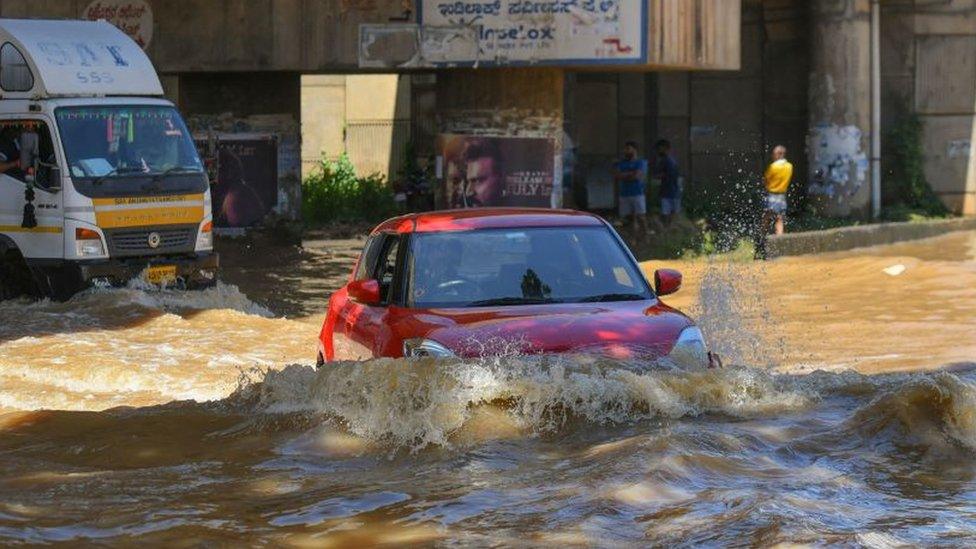
- Published11 July 2019
